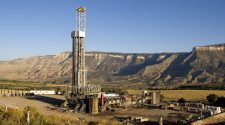Portland City Commissioner Jo Ann Hardesty wants to adopt what could be the most far-reaching ban on facial recognition technology in the country.
Later this month, the city council is expected to evaluate a facial recognition ban proposal which could prevent government agencies from using the identification technology — but that’s not all.
Unlike other city-wide bans that stop at government use, Hardesty supports restrictions that would make the controversial technology off-limits to Portland businesses such as retailers using it to discourage would-be thieves from entering their stores, or corporations using it for employee identification and surveillance.
“The city is interested in regulating the private use of facial recognition technology because of the racial and gender bias and accuracy problems associated with the technology,” Hardesty told GeekWire. “No one should be unjustly harassed by this technology, nor should anyone have to worry about their face being scanned, stored, and sold by companies. I look forward to working with my colleagues on what really is a privacy and civil rights matter.”
Facial recognition technologies employ artificial intelligence to match the faces of real-life people to images in databases. These biometric identification technologies are used by some cities for law enforcement and surveillance purposes, in public schools for security purposes and increasingly in workplaces, stores or other commercial spaces.
The technology has attracted a lot of criticism from researchers and privacy advocates — in part because authorities have been using the technology to track millions of Muslims in northwest China, in part because of reports of race- and gender-related software fails, and in part just because the face is such a big part of a person’s public identity. Civil liberties advocates say widespread use of facial recognition by government agencies or in commercial settings could turn the places we live into invasive surveillance states with little to no privacy protections.
Portland’s facial recognition ban discussions were influenced by San Francisco’s revolutionary ban in May on city government and police use of the technology. Similar bans were later enacted in nearby Oakland and places such as Somerville, Mass. However, those rules apply only to government or police use of the technology.
The proposal Hardesty aims to put forth would prevent corporate or other non-government entities from using facial recognition, particularly if employed for security, surveillance or employee identification purposes.
A ban on private use of facial recognition tech would impact companies such as Amazon and Microsoft. Both corporations sell related products, such as Amazon’s Rekognition software used by law enforcement agencies.
In response to discrimination and civil rights concerns, Amazon defended its technology earlier this month in a blog post.
“You may have read about some of the tests of Amazon Rekognition by outside groups attempting to show how the service could be used to discriminate,” wrote Michael Punke, vice president of global public policy with AWS. “In each case, we’ve demonstrated that the service was not used properly; and when we’ve re-created their tests using the service correctly, we’ve shown that facial recognition is actually a very valuable tool for improving accuracy and removing bias when compared to manual, human processes.”
Related: Portland lawmakers pass privacy resolution to guide policies for facial recognition, other data use
Both Amazon and Microsoft have been advocating for regulation of facial recognition technology at the federal and local levels. A bill in Amazon’s home state, Washington, would have implemented new guardrails for the technology but it died in the state legislature last session. While the bill had support from Microsoft and Amazon, the ACLU fought it, claiming the regulations were too watered-down and permissive.
A few steps must happen before Portland’s expected ban proposal comes together. On Thursday, Portland’s Smart City PDX program and the city’s Office of Equity and Human Rights is scheduled to host an invite-only Surveillance Technologies Community Forum convening representatives from government, non-profit, academic and private business arenas.
Ideas generated during that event will feed discussions at a public city council work session on September 17. The Bureau of Planning and Sustainability, the group drafting the expected ban proposal, plans to make a formal presentation during that meeting.
Related: AI researchers say San Francisco’s facial recognition ban just scratches the surface
Smart City PDX said it believes facial recognition technology is not currently used by any Portland agency, including Portland Police. At least one commercial use of the technology was exposed by Portland’s NBC affiliate KGW, which reported in June that a convenience store used facial recognition technology to prevent alleged thieves from entering the store. Near Portland in Washington County, the Sheriff’s Office became the first law enforcement agency in the U.S. to use Amazon’s Rekognition software to identify crime suspects.
Local group PDX Privacy supports a facial recognition ban, said co-organizer Chris Bushick. His group wants the city to address all biometric identification and surveillance technologies, including the collection of images in public areas by private cameras.
“Gait recognition and iris scans, for instance, also have potential for abuse by companies and government entities,” she said. “We want to encourage the city to craft policies and regulations that broadly address biometric technologies — those currently available and those as-yet-unimagined.”
Supporters of a Portland ban on non-government facial recognition use suggest there is legal ground for one based on a Ninth Circuit court ruling last month that advanced a class action suit against Facebook, rejecting the company’s argument that plaintiffs suffered no concrete harm when it gathered and stored their facial data in conjunction with its photo tagging feature.
All of this is happening under the auspices of Portland’s privacy and data management committee, newly established as a result of the city’s privacy resolution passed in June. The new privacy and information protection principles, intended to guide Portland’s tech and data decisions, are among the few U.S. city policies that incorporate themes of equity, transparency, accountability and non-discrimination.
















